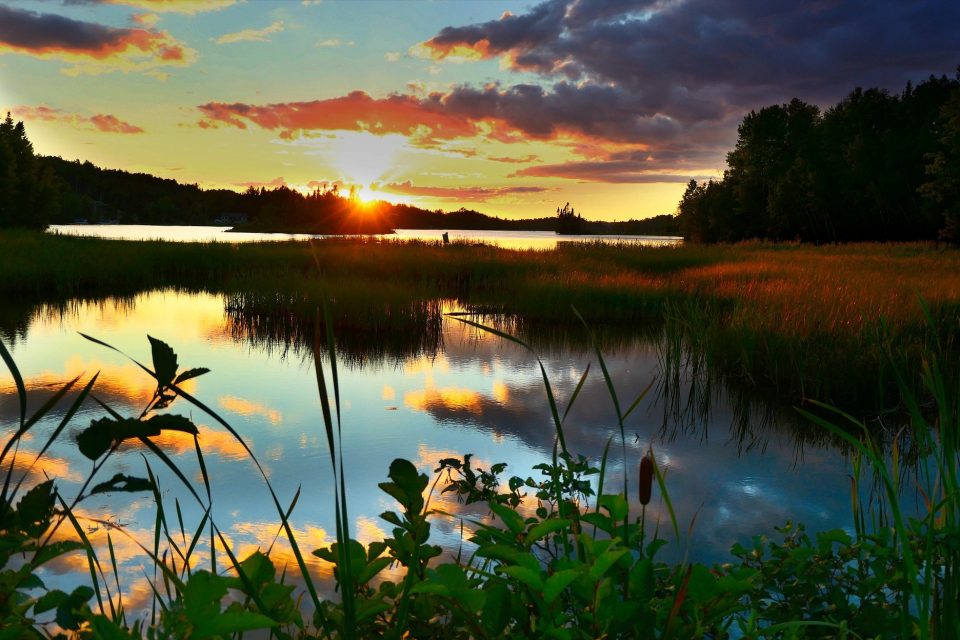
The Unnoticed (and Underappreciated) World of Ecosystem Services
Ecosystem services are the direct and indirect ways that nature benefits human well-being. By definition, an ecosystem is a community of living things interacting with their physical environment. With a healthy balance, these interactions not only sustain life in their own microcosm but also provide vast ecological benefits for the whole planet. In an attempt to specify these values for humans, they became known as ecosystem services. Increasingly, humans have realized that healthy ecosystems and high biodiversity translates to strong economies and advancing cultures.
Categorizing Ecosystem Services
The term “ecosystem services” has been increasingly appearing in the literature over the last 50 years. Finally, in 2006 the United Nations met to formally acknowledge how nature benefits people. With the Millennium Ecosystem Assessment, the U.N. defined ecosystem services more deliberately. Furthermore, they created four categories that a service can fall into – supporting, regulating, provisioning, and cultural.
Supporting
At the foundation of nearly everything are the supporting ecosystem services. As deduced from the name, these processes support all the other services and are critical to a healthy functioning planet. Think of these as the fundamental ecosystem functions that sustain the environment. Supporting services include nutrient cycling, photosynthesis, the water cycle, and soil formation.
Many of these services are cyclical, balanced, and function on a large scale. Hindrances or interruptions to these cycles can devastate not just an ecosystem, but an entire biome.

Decomposers provide the critical ecosystem services of processing natural waste and restoring soil health. Image by stux on Pixabay.
Regulating
Slightly more complex, regulating ecosystem services reflect biotic (living) and abiotic (non-living) factors working synergistically to maintain life as we know it. Examples of regulating services include water purification, flood control, pollination, carbon sequestration, climate regulation, and bacteria decomposing waste.
Where supporting services allow life to exist, regulating services maintain it. These ecosystem services keep natural ecosystems functioning, sustainable, and resilient. They provide us with clean water and air, hold our soil in place, regulate our climate, and keep all the systems running smoothly for our next set of ecosystem services. Even just a simple river ecosystem can create microclimates, prevent erosion, provide critical animal habitats, and reduce pollution.

Food production is one of the most obvious forms of provisioning ecosystem services. Image by congerdesign on Pixabay.
Provisioning
Provisioning ecosystem services include the tangible natural resources that people use from nature. For example, these including fresh water, food production, building materials, medicines, and fuel. We interact closely with these items every day. Because of their physicality, this category of ecosystem service can most easily be assigned an economic value.
These services fit neatly into western ideologies and economies. We can put a price on timber, clothing, or fisheries. However, it’s important to note that these numbers don’t always reflect the true value of the service. This disconnect leads to issues of overuse and abuse — overharvesting, deforestation, overgrazing, overfishing, etc… These harmful effects can trickle down to regulatory and supporting services as well (i.e. lack of fossil fuel extraction leading to climate change).
Luckily, just as these tangible services can be more easily priced and used, they can also be more easily regulated. To support healthy land use, advocate for political decision-making that pushes for a more accurate and inclusive valuation of provisioning services. Vote for policymakers that advocate for sustainable use of our natural resources.
Cultural
Perhaps the most important of the group, cultural ecosystem services include the non-material benefits that nature contributes to the development of human culture. At the same time, these services acknowledge the unique experience of humanity and our inseparable integration with nature. This awareness of humans’ connection with nature leads us to the will and desire to nurture and protect Earth’s ecosystems.
Among the infinite list of cultural ecosystem services, are the ways ecology impacts the social, intellectual, and spiritual development of humanity. While some of these concepts are rather broad, others are very clear. Nature inspires creative outlets like visual arts, architecture, and music. Similarly, pursuits like outdoor recreation, ecotourism, and wilderness therapy celebrate nature and reflect its cultural import. Though more abstract than provisioning, cultural services focus on the connection between people and our environments.

Appreciating nature through outdoor recreation is a type of cultural ecosystem service. Image by Eric Haggart on Pixabay.
Understanding Ecosystem Services
Living on earth, our lives are inextricable from the world’s ecosystems. Humans (along with all the other critters that we share this planet with) rely completely on the provision of ecosystem services to survive and thrive. From forests to deserts to wetlands, ecosystems have evolved a delicate balance to support life. Furthermore, as a way of acknowledging this value and supporting the regulation of ecosystem processes, humans have defined these as ecosystem services. This framework can lead to the great outdoors as solely a provider of natural capital. However, it also highlights the ways humans connect to the natural world. By understanding the importance of healthy ecosystems to our own survival, we can better protect the beautiful world we call home!
[Featured Image by Alain Audet on Pixabay]
Check us out on EarthSnap, a free app brought to you by Eric Ralls and Earth.com.












